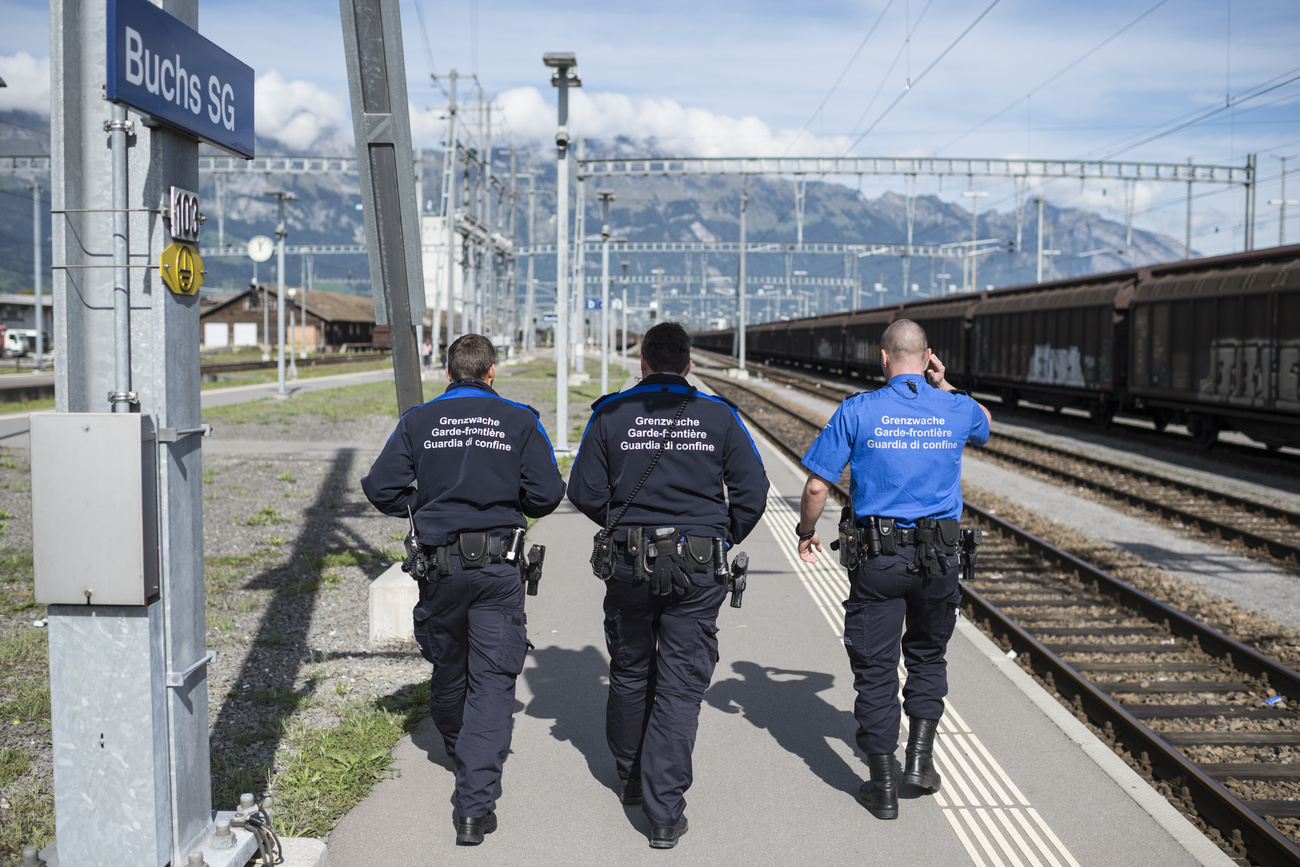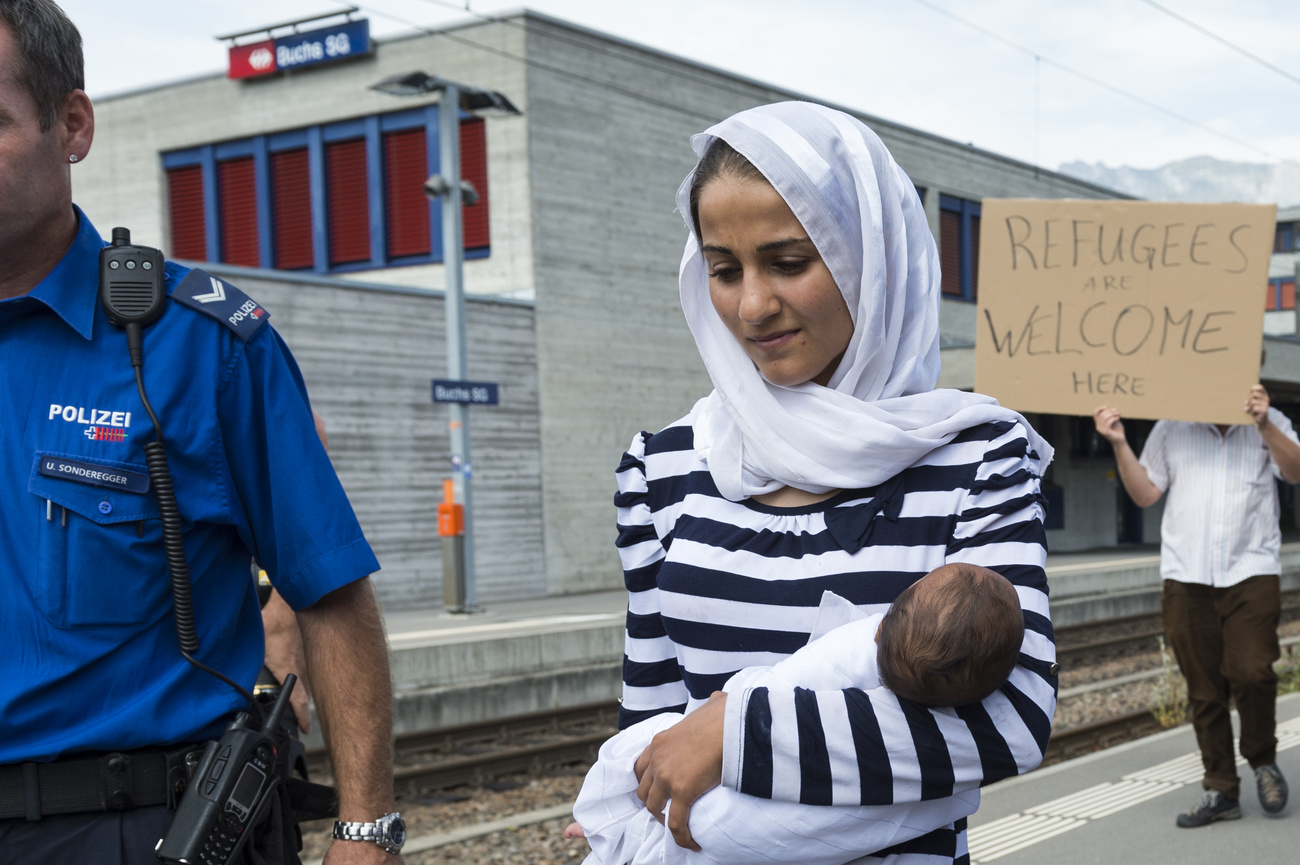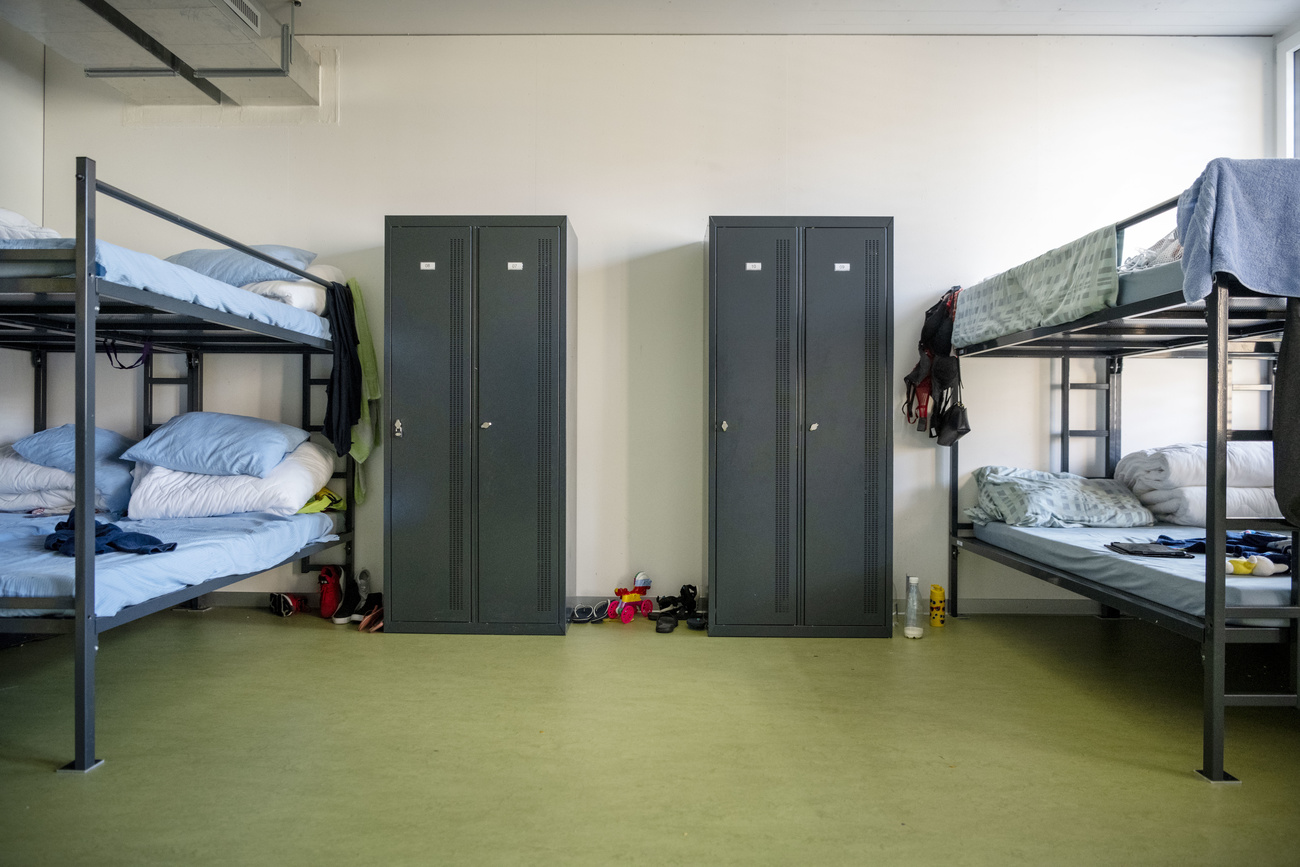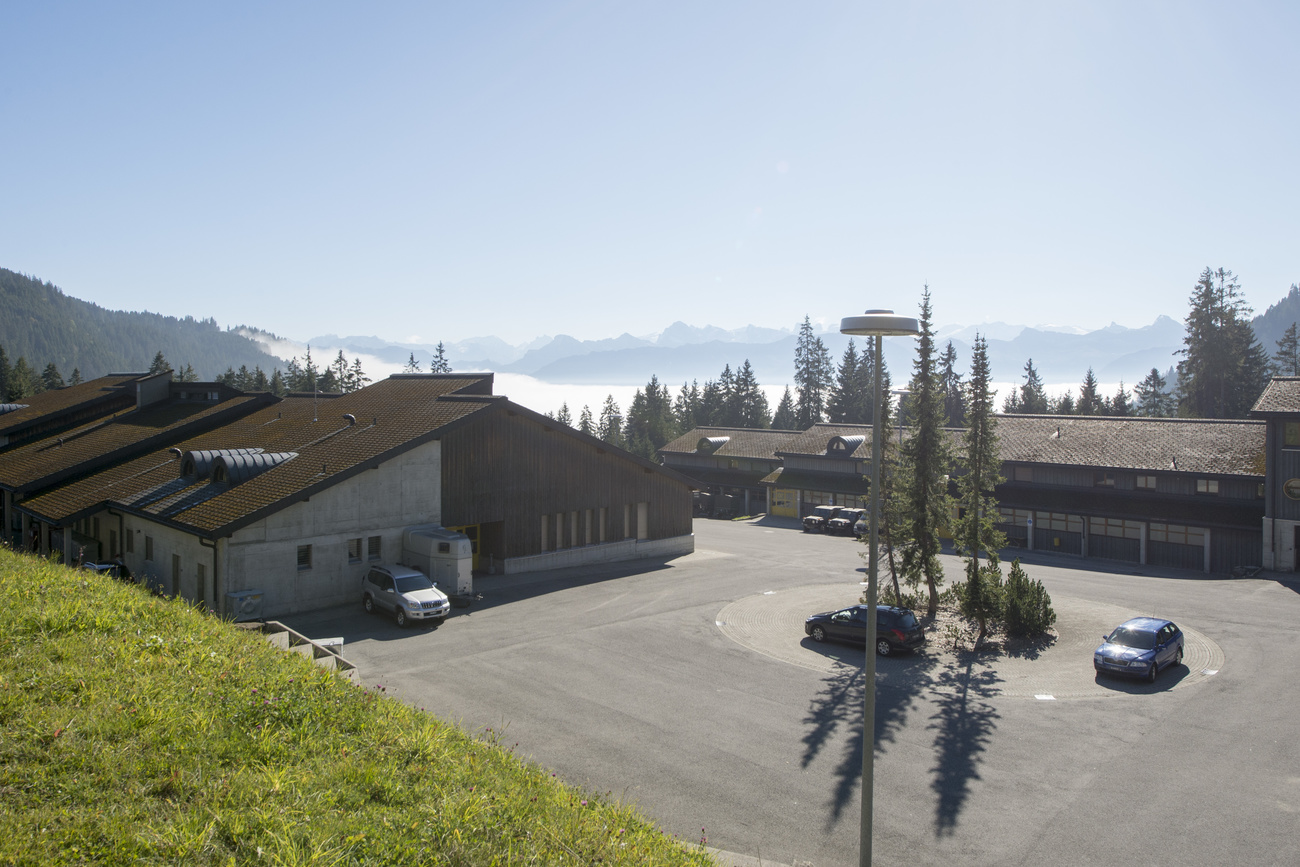
Switzerland criticised for ‘waving through’ migrants

German authorities have criticised Switzerland for allowing migrants to transit to neighbouring countries instead of sending them back as demanded by European accords.
Every week, about a thousand migrants reach Switzerland’s eastern border at Buchs, canton St Gallen. They are mostly young Afghans who do not apply for asylum but want to travel on to France or Germany.
“We formally allow them to continue their journey,” St Gallen cantonal police confirmed to the NZZ am Sonntag newspaper on Sunday. However, this practice has sparked criticism in Germany.
“If these reports are true, Switzerland is simply waving people through,” Andrea Lindholz, deputy leader of the CDU/CSU parliamentary group, told the paper. “National egoisms are damaging the Schengen area.”
Switzerland is not a member of the European Union but belongs to Europe’s passport-free Schengen zone.

More
‘Switzerland is violating the Dublin accords by letting migrants pass through’
A spokesperson for the German Federal Office for Migration and Refugees also declared that the Swiss practice was a violation of Schengen’s Dublin Agreement. “The legal situation is clear. Simply passing through is not possible,” the official stated.
The Dublin Agreement is an EU law setting out which country is responsible for looking at an individual’s asylum application. This is usually the country where the asylum seeker first arrives in the EU.
Lindholz wants the Swiss government to intervene as more and more migrants are travelling to Germany via Switzerland.
“Switzerland must fulfil its obligations as a member of the Schengen area and take action against illegal migration,” she said.
The Swiss State Secretariat for Migration (SEM) rejects the criticism from Germany.
“Switzerland does not forward migrants. Switzerland is not waving through,” SEM spokesperson Daniel Bach told NZZ am Sonntag.
Neither the Dublin Agreement nor other laws are being broken. There is no legal basis for detaining these people, he said. “The Dublin procedure cannot be carried out for people who are no longer present,” he declared.
“As a Schengen member, Switzerland is actively fighting irregular migration,” Bach stressed.

More
Huge hike in refugees stretches Swiss resources
Europe is having to deal with a new influx of migrants. The number of irregular crossings into the European Union has reached its highest level since 2016, the European border security agency, Frontex, said in mid-October.
The consequence for Switzerland: nearly 700 people are arriving every week at its eastern border via the Balkans – about three times as many as last winter. Although applications for refugee status have increased, most of these migrants don’t have any desire to stay in Switzerland. They want to continue on to France or Britain.
An investigation at the beginning of October by Swiss public television, SRFExternal link, found that Switzerland allows migrants to transit to neighbouring countries instead of sending them back as demanded.

More
Swiss migration authorities struggling with ‘overlapping crises’

In compliance with the JTI standards
More: SWI swissinfo.ch certified by the Journalism Trust Initiative





























You can find an overview of ongoing debates with our journalists here . Please join us!
If you want to start a conversation about a topic raised in this article or want to report factual errors, email us at english@swissinfo.ch.